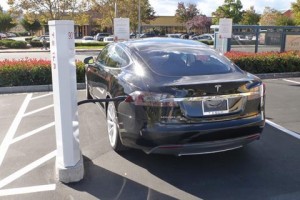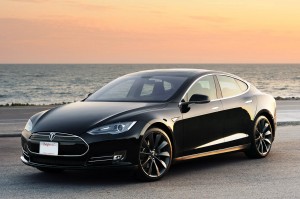The California Legislature passed SB 1275 (De Leon) last week, which would give the California Air Resources Board authority to eliminate the cash rebate incentive for wealthy people who buy electric vehicles. It would then use that revenue to increases the cash incentives for lower-income Californians.
I debated the merits of this approach on KPCC radio last month on the Airtalk program. My write-up of the debate is here. Meanwhile, Grist celebrates that electric vehicles won’t be “pretentious” anymore, as if the Nissan LEAF and Chevy Volt were glamor cars.
As I noted in my write-up, half of all Tesla Model S purchasers reported that the rebate made no difference in their decision. So why not use those funds for people who are truly on the fence without additional rebate money? The goal here for everyone should be to maximize the effectiveness of these limited rebate dollars and spur the greatest adoption possible of electric vehicles. The details will be figured out by agency experts, and that sounds fine to me. The governor has until the end of the month to sign.
 I joined Larry Mantle on his KPCC radio talk show in Southern California this morning for a discussion of State Senator Kevin De Leon’s bill to limit California’s electric vehicle rebate program (up to $2500 off purchases) to low and moderate income customers. The LA Times covers some of the debate here. SB 1275 would direct the California Air Resources Board to figure out the best way to spend limited rebate funds by limiting access to high-income earners.
I joined Larry Mantle on his KPCC radio talk show in Southern California this morning for a discussion of State Senator Kevin De Leon’s bill to limit California’s electric vehicle rebate program (up to $2500 off purchases) to low and moderate income customers. The LA Times covers some of the debate here. SB 1275 would direct the California Air Resources Board to figure out the best way to spend limited rebate funds by limiting access to high-income earners.
My take? California’s overriding goal should be to maximize electric vehicle adoption rates, and if targeting limited public funds on low-income communities is the way to do it, then please proceed. It makes sense in some ways: over half of Tesla owners did not cite the rebates as a motivating factor in their purchases. So why not redirect some of that rebate money to lower-income people where it would make a difference?
A number of listeners on the show today disagreed, and some even took offense that “successful” people were being “punished” by this bill. Personally, I think the state has a strong interest in maximizing the value of limited public funds, and if that means supporting low-income people and helping to expand the market in those communities, let the state go with it. I’m sure many of those listeners would also be upset about their tax dollars not being spent in the most efficient manner, either.
The link to the interview is here.



